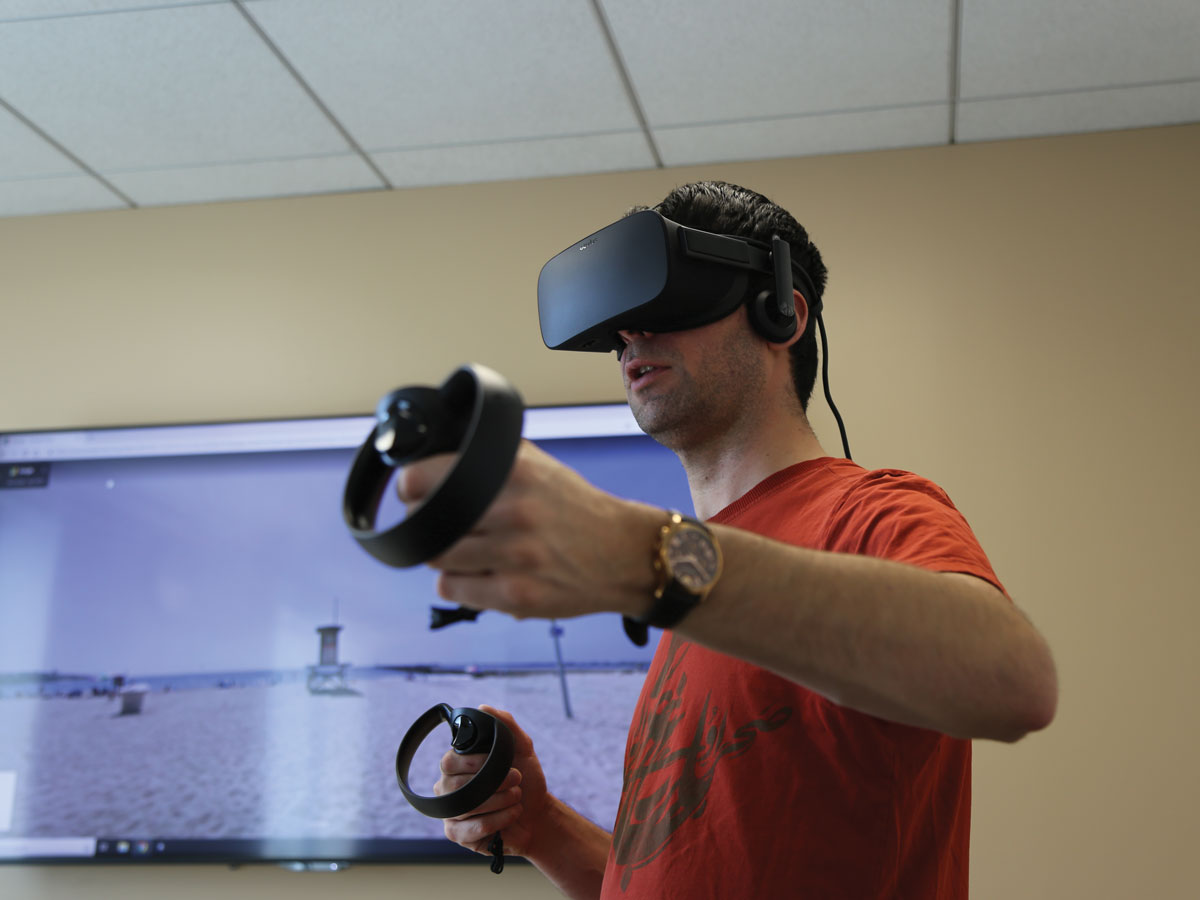Alexandre Martinez didn’t plan to become a climate data scientist and modeler. While growing up in the French countryside, he took an early interest in mathematics and philosophy, and he got his engineering degree at École Centrale de Lille. When Martinez was trying to decide what his next step would be, his English professor recommended he apply to a graduate program in the United States. “So I said, ‘Why not?’ It was a new adventure for me.”
Martinez was able to work on a variety of environmental projects as he pursued his environmental and water resources engineering master’s degree at the University of Texas at Austin and his Ph.D. in civil engineering at the University of California, Irvine. During his Ph.D. he focused on forecasting hydrologic disasters and mitigating their effects on food production and the supply chain. But he quickly realized he wasn’t content to work at the pace of academia, waiting years for his work to affect society.
So Martinez partnered with a friend, a graphic design professor at San Jose State University, to create The Climate VR, a virtual reality tool that projects climate scenarios onto surrounding walls and ceilings. With this tool, users can see for themselves how sea level rise will affect their community and how a seawall might prevent flooding. “What we want to do is to use this tool to improve the communication between citizens and centralized institutions,” said Martinez.
“The duty of the professor is to be able to explain [research] to other people.”
His desire to apply his research also led him to apply to AGU’s 2020–2021 Voices for Science cohort to improve his science communication skills. “If we are Ph.D. students and we want to be professors, the duty of the professor is to be able to explain [research] to other people,” said Martinez. If you can’t explain your research to nonscientists, he said, having a Ph.D. isn’t very useful.
Martinez graduated in 2021 and now works on exposure modeling of marine cargo at Risk Management Solutions. Eventually, he wants to become a professor to show future students how to carry out research for the benefit of others.
This profile is part of a special series in our August 2022 issue on science careers.
—Jackie Rocheleau (@JackieRocheleau), Science Writer


